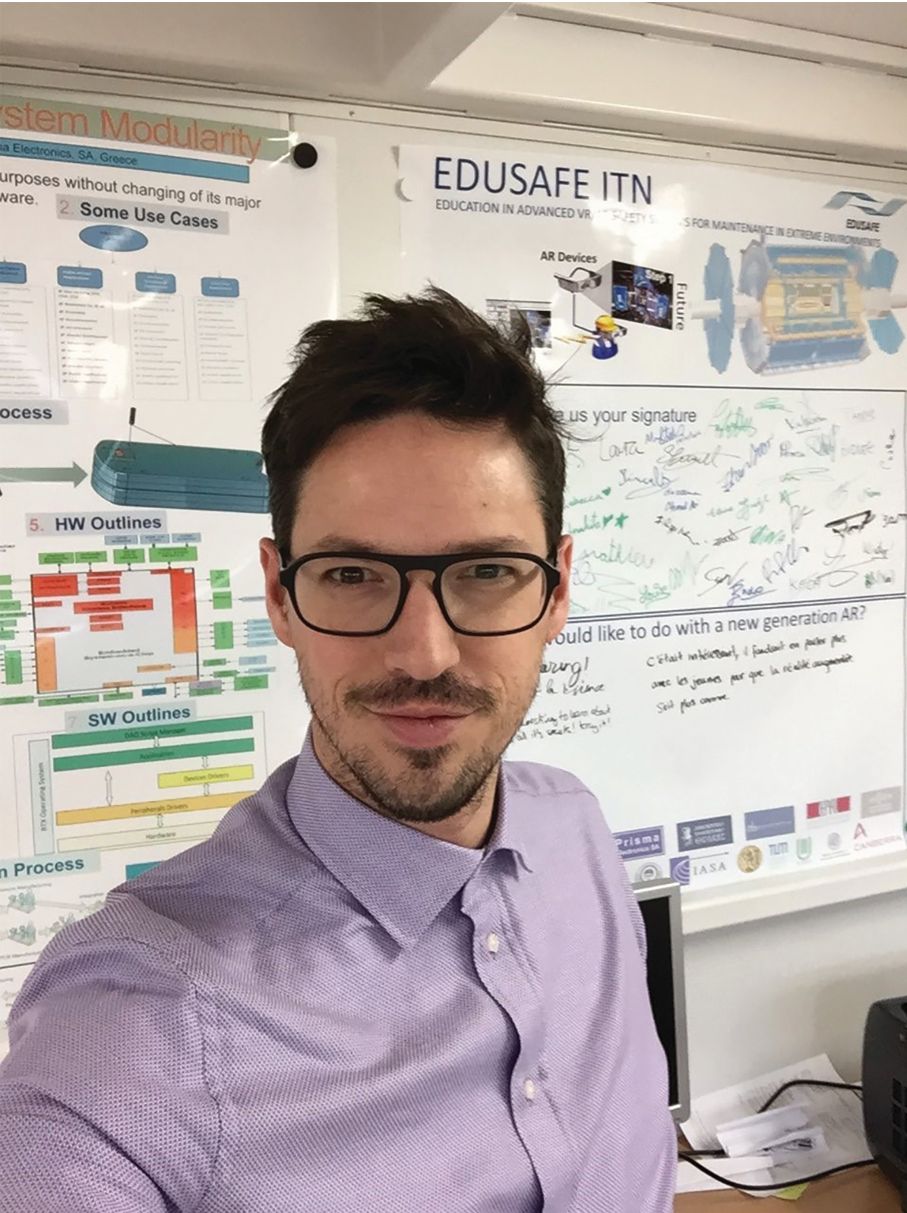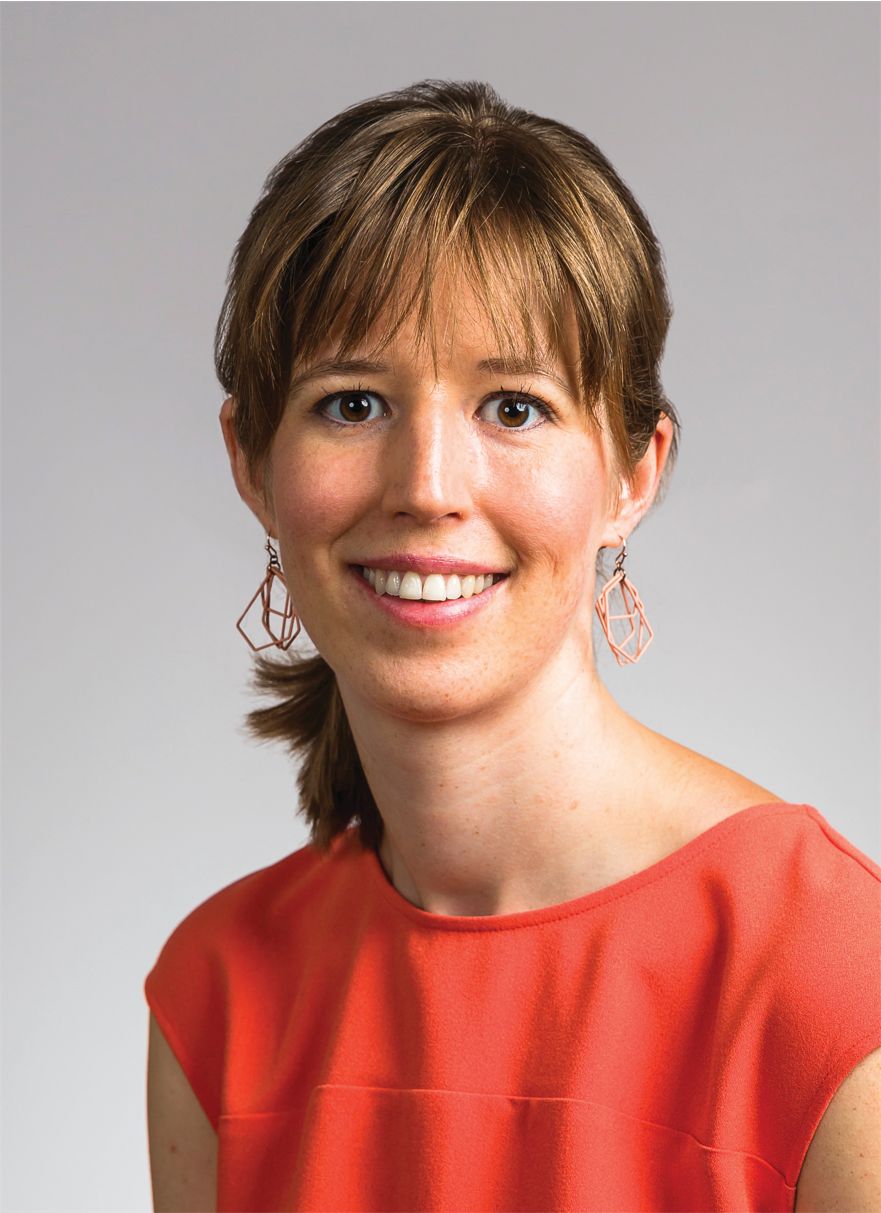Giving a voice to researchers in the new ERA - MCAA Magazine March 2022

MCAA has made its voice heard on the role of stakeholders in the new European Research Area (ERA). Renaud Jolivet and Karen Stroobants shared with us what happened behind the scenes of the discussions.
Renaud Jolivet, in his own words
I trained as a physicist (MSc) and neuroscientist (PhD). After my PhD, I worked as a postdoc for several years in various subfields of neuroscience. During that time, I benefited from a Marie Skłodowska-Curie Actions (MSCA) Individual Fellowships (IF) to spend time at University College London. In 2016, I started in my first faculty job in a joint position between the University of Geneva and CERN (both in Geneva, Switzerland).
In 2021, after about five and a half years as a junior faculty, I was recruited as a Full Professor at Maastricht University in the Netherlands, where I am currently the chair of Neural Engineering and Computation.
I have been involved with MCAA since it was created eight years ago. I was initially loosely involved in various working groups, then in 2017, I founded the Swiss Chapter with others and became the first chair of the chapter. I was then elected to the Board in 2018, where I served one term. Since 2020, I have been the vice-chair and now the chair of the Policy Working Group.

Karen Stroobants, in her own words
I am an experienced researcher and policy professional, currently working part-time as Lead Policy Advisor on research & innovation policy for the Royal Society of Chemistry (RSC) – the UK’s professional body for chemical scientists – and part-time as a freelance consultant and advisor on research strategy, policy and evaluation. I previously held roles as Research Leader on ‘research on research’ at RAND Europe, as Science Policy Unit Lead and before that as Policy Advisor on open access policy at the RSC. I started my career in research policy at the Royal Society- the UK’s national academy of science – where I worked on research culture and developed a narrative CV format for researchers.
I moved to the UK initially to conduct research on the molecular basis of Alzheimer’s disease at the Department of Chemistry, University of Cambridge for which I received a Marie Skłodowska-Curie post-doctoral fellowship. Prior to this, I obtained a PhD in chemistry at KU Leuven in Belgium.
Since 2020, I am a Board Member of the MCAA, and in this capacity support the MCAA’s policy and advocacy work. I was vice-chair of the MCAA’s Policy Working Group from 2018 to 2020.
The European Research Area (ERA) has the ambition to create a single, borderless market for research, innovation and technology across the EU. Since 2018, a new ERA based on excellence is being shaped, to be better equipped to face the new societal, ecological and economic challenges. MCAA has been part of this process and has been invited, with other stakeholders, to give its contribution.
IMPROVING STAKEHOLDER REPRESENTATION
The Association has been focusing on the key issue of stakeholder representation in the piloting of the new ERA. Karen explains: “The Policy Working Group and Board decided to focus their efforts on discussing consultation questions about governance, and who has a seat at the table, since, ultimately, the stakeholders involved in governing the new ERA will be able to set directions and have a final say on priorities and values.”
MCAA has a strong statement on the role of stakeholders in the new ERA. According to both our interviewees, stakeholders should co-design the new ERA, and not only be consulted in an advisory capacity. This should translate into seats at the table of the highest governing body, with voting rights. To Renaud, having such rights for stakeholders has been enabled in other contexts. “There is a successful precedent for such arrangements in the Bologna Process,” he says.
MCAA’s position is publicly acknowledged, as the Association has published an open letter to have research stakeholders represented alongside Member States as part of the governance of ERA. To Renaud, having this open letter signed is a strong signal. “The letter was to publicly share our position and to advocate for researchers having a real voice in the design of the new ERA, which is likely to affect all of us in some way or another in the next years,” he says.
Renaud had already the opportunity to present MCAA’s position at the “New ERA - Presidency conference” in Brdo, Slovenia, organised under the auspices of the Slovenian Presidency of the Council of Europe in October 2021. To Renaud, the road is still long to make the voice of researchers heard at the top political level. “I think that we need more scientists in politics. The issues we are facing soon will all involve extensive use of scientific ideas, and we should follow where evidence drives us,” he emphasises.
SEVEN SEATS FOR SEVEN STAKEHOLDER SECTORS
When asked about the next steps as regards MCAA’s involvement in the new ERA, Karen is confident that MCAA’s voice will have an influence. “Our advocacy work has been making an impact,” she says.
Both our interviewees highlight the following success: Seven seats in the new ERA governance have already been made available for seven stakeholder sectors (universities and other higher education institutions; research and technology performing organisations; Research & Innovation (R&I)-intensive businesses; individual researchers and innovators; research infrastructures; R&I-funding organisations; national academies).
SHEDDING A LIGHT ON EARLY- STAGE RESEARCHERS
To Renaud, the next focus should be made on Early-Stage Researchers. “For MCAA, the next main objective is that the representative for the “individual researchers and innovators” sector is a staunch defender of early-career researchers. To this end, we are engaging with similar-minded stakeholder organisations such as Eurodoc, the Initiative for Science in Europe (ISE), the Young Academy of Europe (YAE) and others, to agree on and propose an appropriate representative. It is our hope that this approach will result in a considered solution,” he concludes.
Aurélia Chaise
MCAA Editorial Team